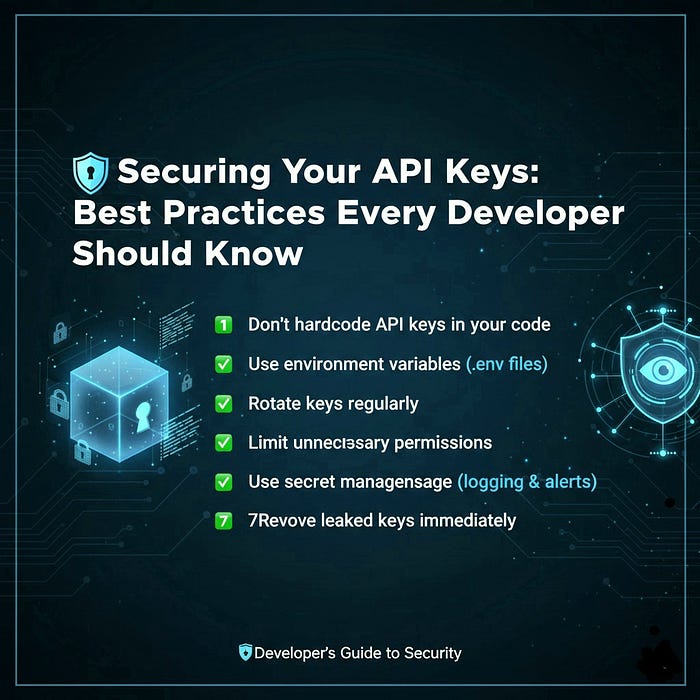API keys are like the master keys to your digital world — they unlock access to powerful services, databases, and systems. But with great power comes great responsibility. If your API keys fall into the wrong hands, attackers can exploit them to steal data, send malicious requests, or even rack up massive bills on your cloud account.
So, how do you keep them safe? Here are some best practices every developer should follow 👇
1️⃣ Never Hardcode API Keys in Your Code
It's tempting to drop a key directly into your source code — but that's a big mistake. Anyone with access to your repository can see it. Even private repos aren't 100% safe. 👉 Use environment variables or secret management tools instead.
2️⃣ Use Environment Variables (.env Files)
Store your keys in a .env file and load them dynamically at runtime. This keeps them separate from your codebase and out of version control.
Treat API keys like passwords — change them often. Regular rotation limits exposure if a key gets compromised.
4️⃣ Restrict Permissions and Usage
Grant only the minimum level of access your application truly needs. Also, restrict usage by IP address or domain whenever possible.
5️⃣ Use Secret Management Services
Platforms like AWS Secrets Manager, Google Secret Manager, or Vault let you manage, rotate, and audit secrets securely.
6️⃣ Monitor and Audit API Key Usage
Set up logging and alerts for suspicious activity — like spikes in traffic or requests from unfamiliar regions.
7️⃣Revoke Leaked Keys Immediately
If you ever suspect an API key leak, don't wait — revoke it immediately and generate a new one.
---

